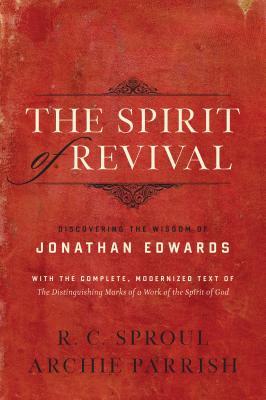- Bíblia
- Leia a Bíblia
- Versões da Bíblia
- Verso do dia
- Planos de Leitura
- Versos por Tópico
- Books of the Bible
- Imagens bíblicas
- Estude
- Comentários
- Concordâncias
- Dicionários
- Enciclopédias
- Sermões
- Bible Atlas & Maps
- BP Wiki
- Devocionais
- Devocionais de hoje
- Light of the World
- Todos os devocionais
- Inspirational Quotes
- Mais
- Picture Quotes
- Videos
- Inspirador
- Estudo da Bíblia
- O que a Bíblia diz
- Bible Q&As
- Daily Bread
- Bible by Genre
- Bible Stories
- Random Bible Verse
- Comunidade
- Store
A key figure during the Great Awakening, Jonathan Edwards wrote this important discourse, The Distinguishing Marks of a Work of the Spirit of God, in 1741, just after the revival had reached its peak. In his thorough exploration of the true and false signs of revival, drawn from 1 John 4, Edwards concludes that while a movement may be accompanied by excesses and questionable actions, these signs do not necessarily disqualify it as authentic.
In a refreshing way Edwards embraces a genuine enthusiasm in these manifestations while stressing the need for biblical discernment. His critique is kind and gentle as he points to the true marks of revival: love and humility. In The Spirit of Revival, Parrish makes Edwards's entire work more accessible by modernizing the text and adding explanatory notes. R. C. Sproul's extended introduction compares the great theologian's time to our own, and the preface by Edwards's contemporary William Cooper rings resoundingly to the people of God today.
Edwards's message provides more than just insight into the Great Awakening. It is a map to follow for all revivals in all times.
In a refreshing way Edwards embraces a genuine enthusiasm in these manifestations while stressing the need for biblical discernment. His critique is kind and gentle as he points to the true marks of revival: love and humility. In The Spirit of Revival, Parrish makes Edwards's entire work more accessible by modernizing the text and adding explanatory notes. R. C. Sproul's extended introduction compares the great theologian's time to our own, and the preface by Edwards's contemporary William Cooper rings resoundingly to the people of God today.
Edwards's message provides more than just insight into the Great Awakening. It is a map to follow for all revivals in all times.
BUY NOW
Paperback, 223 pages
Published January 1st 2008 by Crossway Books (first published January 1st 1999)
Se inscrever
© 2025 Bibleportal.com Todos os direitos reservados.

Robert Charles Sproul was an American Reformed theologian and ordained pastor in the Presbyterian Church in America. He was the founder and chairman of Ligonier Ministries and could be heard daily on the Renewing Your Mind radio broadcast in the United States and internationally. Under Sproul's direction, Ligonier Ministries produced the Ligonier Statement on Biblical Inerrancy, which would eventually grow into the 1978 Chicago Statement on Biblical Inerrancy, of which Sproul, alongside Norman Geisler, was one of the chief architects. Sproul has been described as "the greatest and most influential proponent of the recovery of Reformed theology in the last century."
... Show more